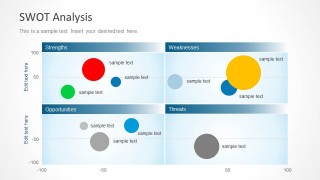Learn more how to embed presentation in WordPress
- Slides
- 18 slides
Published Mar 9, 2014 in
Business & Management
Direct Link :
Copy and paste the code below into your blog post or website
Copy URL
Embed into WordPress (learn more)
Comments
comments powered by DisqusPresentation Slides & Transcript
Presentation Slides & Transcript
What can and can’t employees post on their own social media profiles ? (France & USA)Reputation and social media
A few figures…45% of the employers research informations on Facebook and Twitter about potential candidates… or their own employees.15% of the employees speak about their firm on the internet.21% of them speak about their firm in a negative way.86% of the employees are aware of the sanctions they expose themselves to.
What can and can’t employees post on their social media profiles?Can they?Criticize their firm’s management… when it’s not proved: diffamation.Criticize their manager, or a workmate.Prefer Twitter to Facebook to post their criticismPost Pictures?So they should…Be careful and avoid any verbal abuses…Control their profiles…
1. Criticize their firm’s doings if it’s not provedDefamation : Any intentional false communication, either written or spoken, that harms a person's reputation; decreases the respect, regard, or confidence in which a person is held; or induces disparaging, hostile, or disagreeable opinions or feelings against a person.Legal risks: In France: 12 000 to 45 000 €.In the US: Fines and prison sentence.
The « Quick Case »
How the crisis started…
Who launched the crisisDiscovered thanks to a judiciary investigation. Dismissed the XX of XX by the following words:« I received the order not to let you come in ».
2. Criticize their hierarchy… In favor of the employee: Mr Stutsel vs Linfox.Racist, sexually harassing and threatening comments about two of his managers. He was fired in 2011.Defence: not very used to facebook and privacy settings, and didn’t know who was able to see his posts.Regarding his age, his experience, limited understanding of Facebook and unblemished record, the Court held that the dismissal was unfair.
2. Criticize the hierarchyAgainst the employeeK C Preece v JD Wetherspoons (January 2011) : A shift manager was dismissed for making inappropriate comments on her Facebook page, while at work, about customers who had verbally abused and threatened her. Dismissal was deemed fair. It did not matter that she thought her privacy settings meant only close friends could see her entries.The tribunal judged that it was public domain.
3. Prefer using Twitter to Facebook…French law tends to make a difference between Facebook and Twitter.
« Agence du Palais » jurisprudence.« Agence du palais » vs an employee who had posted a few slanders on various social media:MSN: « sarko devrait voter une loi pour exterminer les directrices chieuses comme la mienne !! »Facebook: « extermination des directrices chieuses » and « éliminons nos patrons et surtout nos patronnes (mal baisées) qui nous pourrissent la vie ».
What the law said…French Law: the Cour de Cassation considered that: Facebook and MSN profiles are accessible to chosen « friends ».They are not a « community of interest », but selected on private criteria.Facebook is not a public space. Insulting someone on Facebook is not a public offence.In the US, this decision depends on the situation:K C Preece v JD Wetherspoons (January 2011), a shift manager was dismissed for making inappropriate comments on her Facebook page. Dismissal Deemed Fair. Smith v Trafford Housing Trust (October 2012). A Christian housing manager made comments on Facebook in which it was clear that he disagreed with gay marriage in church. He was demoted because, the Trust thought it might bring them into disrepute. Dismissal Deemed unfair.
3. Twitter vs Facebook: public space or not?French Law:Facebook: verbal abuses are not public offenses, but they are still a slander > Fine.Twitter: on the contrary, Twitter is a public account > Infraction, defamation, dismissals.Arrêt n° 344 du 10 avril 2013 (11-19.530) - Cour de cassation - Première chambre civile.US Law:Smith v Trafford Housing Trust (October 2012): Depends on the goal of the Facebook Page and the privacy settings.
4. How about posting pictures?Two different cases:Content: Defamation and public offence.Revealing a lie.These two cases reveal the fact that employers are more and more ready to check their employes’profiles… If they don’t, somebody will do it for you…
Case 1: revealing a lie.A family eventToo sick to work on a computer
Case 2: insulting somebody« He makes me think ok my director »
Moral aspects@carlycrunkbear. A math teacher explains on her Twitter account how hot are her students and how much she likes weed. She posted half naked pictures and tweets about her rave parties.Administrative leave and dismissal.
Reminder.Employees:Avoid doing it.Careful! « Retweet is approbation »The employers will try to condamn you for « public insult »: so close your account.Don’t do it during your working time.Employers:The law tend to consider Facebook as a private profile. Sanctions will be more and more rare. Make the employees aware of their responsabilities.Create a chart.








